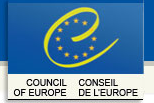Human rights and ‘Sharing the Pain’

Amidst all the current mainstream rhetoric about sharing the burden of our economic crisis, there’s been a striking lack of discussion about the limits of the pain that can be offloaded on the worst-off. Ireland’s obligations under international human rights law are very relevant here, but seem to be missing in action at the moment. What follows are a few suitably po-faced and technical legal points: read at your own risk!
Ireland, along with its fellow EU member states, has signed and ratified a series of human rights treaty instruments which commit states to respecting basic social rights. These include the UN Covenant on Economic, Social and Cultural Rights (UNESCR in the acronym-ridden world of international human rights law), and the European Social Charter, which requires states among other things to maintain a functioning social security net, provide social assistance to those in need and ensure workers receive a fair and just remuneration.
The European Committee on Social Rights has interpreted these obligations as requiring states to provide a decent income to individuals and families in need, which does not fall excessively below the median standard of living. Similarly, the Committee has interpreted Art. 4(1) of the Charter as requiring states to establish a minimum wage that does not fall too far short of the median national wage. The UN Committee on Economic, Social and Cultural Rights has developed similar standards.
In other words, respecting social rights means more than simply ensuring that the poor don’t starve: it requires that individuals and families receive a decent income through work or social assistance. Ireland, along with the rest of the EU, has accepted these obligations: they bind our generous donors as well as ourselves.
However, they seem at present to be comprehensively overlooked in media and policy debates about our austerity package. Few possibilities exist for enforcing these international law obligations through courts: however, they provide a point of reference which should place limits on how low we as a society choose to go.
Colm O'Cinneide
is a Reader in Law
at University College London.
